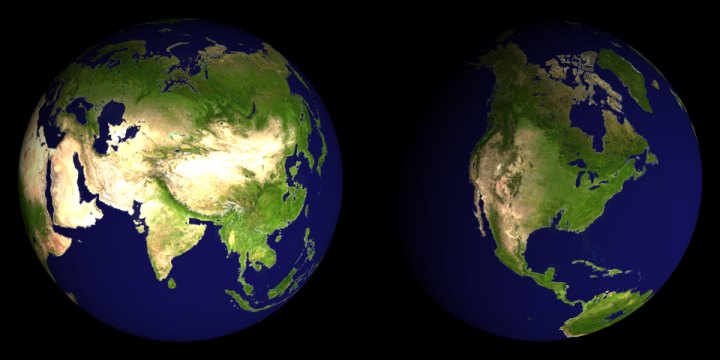ShadowBoxing
Avenger
- Joined
- Sep 10, 2004
- Messages
- 30,620
- Reaction score
- 2
- Points
- 31
Arctic ice cap melting away
September 30, 2005
THE Arctic ice cap could disappear completely, well before the end of the century as a result of global warming, US scientists have warned.
The Arctic ice shelf has melted for the fourth straight year to its smallest area in a century, driven by rising temperatures that appear linked to a build-up of greenhouse gases.
If the shrinking trend continues at its present rate of 8 per cent a year, there could be no ice at all at the pole as early as the summer of 2060.
The extent of Arctic sea ice varies naturally, but researchers from the US National Snow and Ice Data Centre and NASA, which produced the new data, said there were strong indications that human-induced global warming was at least partially responsible. "It's still a controversial issue, and there's always going to be some uncertainty because the climate system does have a lot of natural variability, especially in the Arctic," said Mark Serreze of NSIDC, who led the research, "but I think the evidence is growing very, very strong that part of what we're seeing now is the increased greenhouse effect."
Sea ice cover in the Arctic, which does not boast a continental land mass like Antarctica, always shrinks to its lowest point in September, at the end of the northern hemisphere summer. For each of the past four years, satellite data has shown a substantial reduction in ice extent during this period.
On September 21, the average size of the cap had dropped to 5.31 million square kilometres -- the lowest in satellite records that stretch back to 1978.
Less accurate historical records indicate the latest low is unprecedented for more than a century. The area now covered by ice is 20 per cent lower than the average from 1978 to 2000.
"September 2005 will set a new record minimum in the amount of Arctic sea ice cover," Dr Serreze said. "It's the least sea ice we've seen in the satellite record, and continues a pattern of extreme low extents of sea ice which we've seen for the past four years."
Julienne Stroeve, one of his colleagues, said: "Considering the record low amounts of sea ice this year leading up to the month of September 2005 will almost certainly surpass 2002 as the lowest amount of ice cover in more than a century."
The decline is particularly worrying as it has the potential to create a feedback effect that accelerates global warming. Sea ice reflects much of the sun's heat back into space, while the ocean beneath absorbs it, so shrinking cover will raise temperatures still further. Reuters, The Times
September 30, 2005
THE Arctic ice cap could disappear completely, well before the end of the century as a result of global warming, US scientists have warned.
The Arctic ice shelf has melted for the fourth straight year to its smallest area in a century, driven by rising temperatures that appear linked to a build-up of greenhouse gases.
If the shrinking trend continues at its present rate of 8 per cent a year, there could be no ice at all at the pole as early as the summer of 2060.
The extent of Arctic sea ice varies naturally, but researchers from the US National Snow and Ice Data Centre and NASA, which produced the new data, said there were strong indications that human-induced global warming was at least partially responsible. "It's still a controversial issue, and there's always going to be some uncertainty because the climate system does have a lot of natural variability, especially in the Arctic," said Mark Serreze of NSIDC, who led the research, "but I think the evidence is growing very, very strong that part of what we're seeing now is the increased greenhouse effect."
Sea ice cover in the Arctic, which does not boast a continental land mass like Antarctica, always shrinks to its lowest point in September, at the end of the northern hemisphere summer. For each of the past four years, satellite data has shown a substantial reduction in ice extent during this period.
On September 21, the average size of the cap had dropped to 5.31 million square kilometres -- the lowest in satellite records that stretch back to 1978.
Less accurate historical records indicate the latest low is unprecedented for more than a century. The area now covered by ice is 20 per cent lower than the average from 1978 to 2000.
"September 2005 will set a new record minimum in the amount of Arctic sea ice cover," Dr Serreze said. "It's the least sea ice we've seen in the satellite record, and continues a pattern of extreme low extents of sea ice which we've seen for the past four years."
Julienne Stroeve, one of his colleagues, said: "Considering the record low amounts of sea ice this year leading up to the month of September 2005 will almost certainly surpass 2002 as the lowest amount of ice cover in more than a century."
The decline is particularly worrying as it has the potential to create a feedback effect that accelerates global warming. Sea ice reflects much of the sun's heat back into space, while the ocean beneath absorbs it, so shrinking cover will raise temperatures still further. Reuters, The Times

